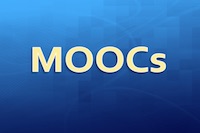Accessibility of MOOCs: Understanding the Provider Perspective
 Massive Online Open Courses (MOOCs) have become an accepted way to make learning opportunities available at large scale and with low cost to the learner. However, only if these are made accessible will they be able to offer flexibility of learning and benefits to all, irrespective of disability. Experience in providing accessible online learning at distance universities suggests that this can be best achieved through understanding different roles and the options in planning for adjustments to be made. To effectively apply similar approaches to MOOCs, it is necessary to understand the various viewpoints and roles of stakeholders and how these impact on accessibility. This includes educators who create materials and facilitate learning, and technologists who develop and maintain platforms. In this paper, we report the results from a study involving semi-structured interviews to investigate the perceptions and accessibility-related processes of MOOC platform accessibility managers, platform software developers and designers, and MOOC accessibility researchers. Our results show the awareness that MOOCs can be valuable for disabled learners, and indicate that legislation acts as a driver for accessibility. However, our investigations suggest limited progress to date in either producing universally accessible MOOCs, or tailoring MOOCs to meet the needs of individual learners with disabilities.
Massive Online Open Courses (MOOCs) have become an accepted way to make learning opportunities available at large scale and with low cost to the learner. However, only if these are made accessible will they be able to offer flexibility of learning and benefits to all, irrespective of disability. Experience in providing accessible online learning at distance universities suggests that this can be best achieved through understanding different roles and the options in planning for adjustments to be made. To effectively apply similar approaches to MOOCs, it is necessary to understand the various viewpoints and roles of stakeholders and how these impact on accessibility. This includes educators who create materials and facilitate learning, and technologists who develop and maintain platforms. In this paper, we report the results from a study involving semi-structured interviews to investigate the perceptions and accessibility-related processes of MOOC platform accessibility managers, platform software developers and designers, and MOOC accessibility researchers. Our results show the awareness that MOOCs can be valuable for disabled learners, and indicate that legislation acts as a driver for accessibility. However, our investigations suggest limited progress to date in either producing universally accessible MOOCs, or tailoring MOOCs to meet the needs of individual learners with disabilities.







